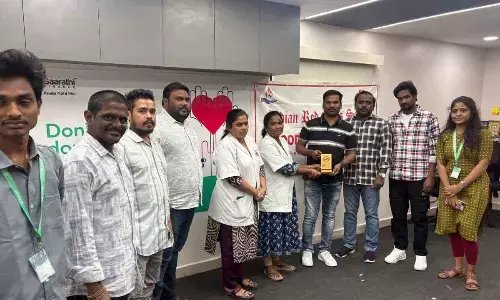Hijab or no hijab: A fundamental question

Hijab or no hijab: A fundamental question
What to wear in a classroom is not important, what to learn is
On February 5, the Karnataka government passed an order in exercise of its powers under Section 133 of the Karnataka Education Act, 1983, inter alia directing that in colleges that come under the pre-university education department's jurisdiction, the uniforms mandated by the College Development Committee, or the board of management, should be worn and in the event, the management does mandate a uniform, students should wear clothes that are in the interests of unity, equality, and public order.
When this order was sought to be implemented by the Government PU Colleges in Udupi which barred a few girls from wearing hijab and insisted on implementing a uniform dress code, the girls opposed the ban, which for political reasons evolved into agitations and counter agitations, first across Karnataka and subsequently, to other parts of the country, supporting or opposing the right to wear hijabs in classrooms.
Therefore, a fundamental question arises as to whether Article 25 of the Constitution protects the right of students to wear Hijabs in classrooms which will now be decided by the Karnataka High Court and most probably by the Hon'ble Supreme Court.
A similar controversy arose in 2003 when the Bombay High Court in the case of Fatima Hussain Syed v/s Bharat Education Society and Others, ruled that it was not a violation of Article 25 for the principal to prohibit the wearing of head scarf or head covering in the school.
Further in 2018, the Hon'ble Kerala High Court in its Judgment dated December 4, 2018 titled Fathima Thasneem (Minor) vs State of Kerala & Others sought to balance the fundamental right of a woman to have the choice of dress based on religious injunctions and the fundamental right to establish, manage and administer an institution. In the said background, the Kerala High Court held that individual rights/ interest must give yield to the larger public interest and, therefore, it is for the institution to decide whether the petitioners can be permitted to attend the classes with the headscarf and full sleeve shirt and if a student does not wish to abide by the dress code, they can seek transfer certificate.
However, despite the said decision, the said dispute is being raised again and has now attained the status of a national debate with the other side insisting on wearing saffron shawls and scarves in classrooms.
It is a settled legal position that no fundamental right is absolute in nature. Article 25 of the Constitution which provides the fundamental right to profess, practise and propagate a religion is also subject to restrictions in the interest of public order, morality, health and other interests of the State. Even assuming that wearing hijab is a religious practice, the same is not absolute and must give way to larger interests of public order and state. The said position has also been upheld by the Hon'ble Supreme Court in Asha Ranjan and others v/s State of Bihar and others (2017) holding that individual interest must yield to the larger public interest.
Thus, conflict over competing rights can be resolved not by negating individual rights but by upholding the larger right to remain, to hold such relationships between institutions and students.
A uniform dress code is introduced with an objective to bring homogeneity and a sense of uniformity and to implement a sense of order and discipline amongst the students and any insistence on deviating from the said dress code defeats the said objective. The right to establish and administer an institution under Article 19(1)(g) or Article 29 & 30 will also include the right to maintain order and discipline in the same and if the institutional rules are not followed by a student, the institution has a right to deny entry to that student as well.
Therefore, the larger question i.e. whether wearing hijab is an essential practice of Islam and therefore, the students have a fundamental right to wear hijabs is only being stoked due to vested political interests and courts must be very careful in dealing with the same as the same will directly affect the unity and social fabric of our country.
We also need to understand that banning hijabs or other face covering from school uniforms is not confined to our country or something unique being imposed by the ruling party. In 2011, France banned burqa covering the face in public schools and barred students from displaying any form of religious symbols. Subsequently, several other countries such as Switzerland, Netherlands, Belgium, China, Austria, Bulgaria, and Sri Lanka amongst others have imposed a ban on hijabs and other facial and head coverings on public transportation, in government buildings and at health and education institutions.
In order to paint all these countries as Islamophobic on account of the ban imposed by them, may not be correct. Public security, sense of equality and checking religious extremism have been a valid reason for upholding the ban on the hijab, which anyways is perceived as a symbol of women oppression and no freedom of choice can be allowed to trump these valid concerns of the Society at large.
What to wear in a classroom is not important, what to learn is.
(The author is Advocate-on-Record, Supreme Court of India)

















